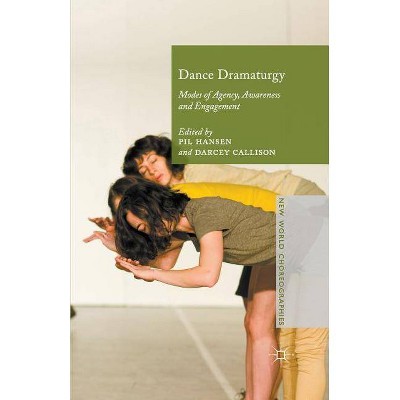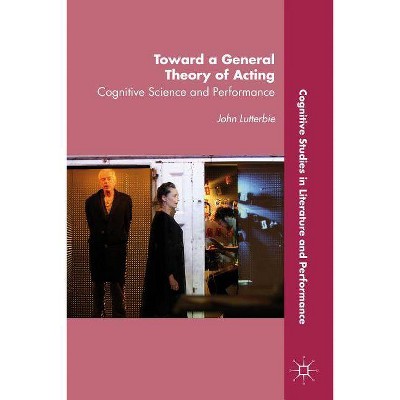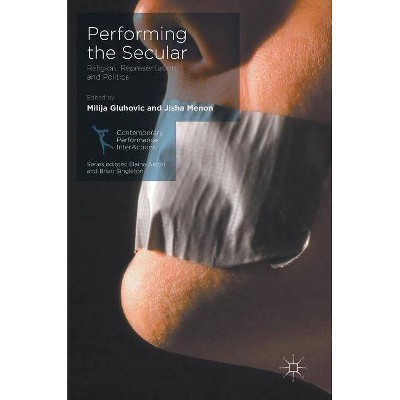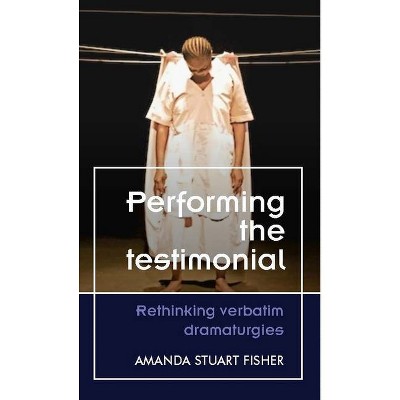Performing the Remembered Present - (Performance and Science: Interdisciplinary Dialogues) by Pil Hansen & Bettina Bläsing & John Lutterbie
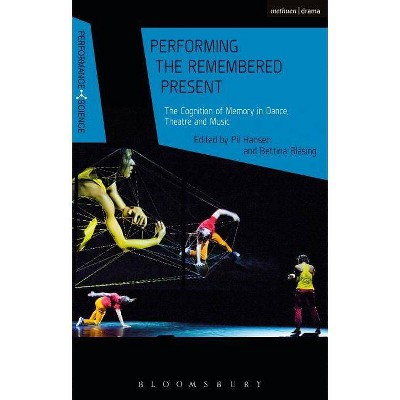
Similar Products
Products of same category from the store
AllProduct info
<p/><br></br><p><b> About the Book </b></p></br></br>"This international collection brings together scientists, scholars, and artist-researchers from four continents to explore the cognition of memory through the performing arts and examine artistic strategies that target cognitive processes of memory and learning. The strongly embodied and highly trained memory systems of performing artists render artistic practice a rich context for understanding how memory is formed, utilized, and adapted through interaction with others and active engagement with tasks, instruments and environments. Using methods of scientific experimentation, practice-based research, and analytical case studies that bridge disciplines, the authors pursue questions about the following subjects: embodiment and amnesia in collectively distributed memory; memory triggers in performance creation and reception; the journey from explicit learning to implicit skill acquisition in performance training; the relationship between memory and creative spontaneity; memorization and gesture, and the augmentation of identification through performance recall. This volume provides an unprecedented resource for scientists, scholars, artists, teachers, and students looking for insight into the cognition of memory in performance, new learning and performance strategies, and interdisciplinary research methodology"--<p/><br></br><p><b> Book Synopsis </b></p></br></br>This international collection brings together scientists, scholars, and artist-researchers from four continents to explore the cognition of memory through the performing arts and examine artistic strategies that target cognitive processes of memory and learning. The strongly embodied and highly trained memory systems of performing artists render artistic practice a rich context for understanding how memory is formed, utilized, and adapted through interaction with others and active engagement with tasks, instruments and environments. Using methods of scientific experimentation, practice-based research, and analytical case studies that bridge disciplines, the authors pursue questions about the following subjects: <br/>* embodiment and amnesia in collectively distributed memory; <br/>* memory triggers in performance creation and reception; <br/>* the journey from explicit learning to implicit skill acquisition in performance training; <br/>* the relationship between memory and creative spontaneity; <br/>* memorization and gesture, <br/>* and the augmentation of identification through performance recall.<p/><br></br><p><b> About the Author </b></p></br></br><p><b>Pil Hansen</b> is an Assistant Professor and Graduate Program Director at the School of Creative and Performing Arts, University of Calgary, Canada; a founding member of Vertical City Performance; and a dramaturg. Her empirical and PaR experiments examine cognitive dynamics of memory and perception in creative processes. With Bruce Barton, she developed the multi-disciplinary research model 'Research-Based Practice'. Hansen chairs the PSi Working Group on Dramaturgy and Performance; her award-winning creative work has toured nationally and internationally; and her scholarly research is published in <i>Connection Science, Journal of Dramatic Theory and Criticism, TDR: The Drama Review, Performance Research, Theatre Topics, and Koreografisk Journal </i>among other journals and ten essay collections on dramaturgy, cognitive performance studies, and research methods. Hansen co-edited the essay collection <i>Dance Dramaturgy: Modes of Agency, Awareness and Engagement </i>(2015). Current and recent artistic collaborators are: Kaeja d'Dance, Theatre Junction Grand, Toronto Dance Theatre, and Public Recordings. <p/><b>Bettina Bläsing</b> is a responsible investigator at the Center of Excellence <i>Cognitive Interaction Technology</i> (CITEC) at Bielefeld University, Germany. She studied Biology at Bielefeld University and Applied Animal Behaviour and Welfare at the University of Edinburgh, Scotland. Bettina worked as science journalist and editor, and as a postdoctoral researcher at the Max Planck Institute for Evolutionary Anthropology and University of Leipzig before joining the Neurocognition and Action Research Group at Bielefeld University in 2006. Her main research interests are mental representations of body, movement and space; the control and learning of complex movements and manual actions; and expertise in dance.</p>
Price History
Price Archive shows prices from various stores, lets you see history and find the cheapest. There is no actual sale on the website. For all support, inquiry and suggestion messagescommunication@pricearchive.us
